Product List
Contáctenos
Correo electrónico: qiao@hvtest.cc
Móvil: +8615871365102
Qué aplicación: +8615871365102
-
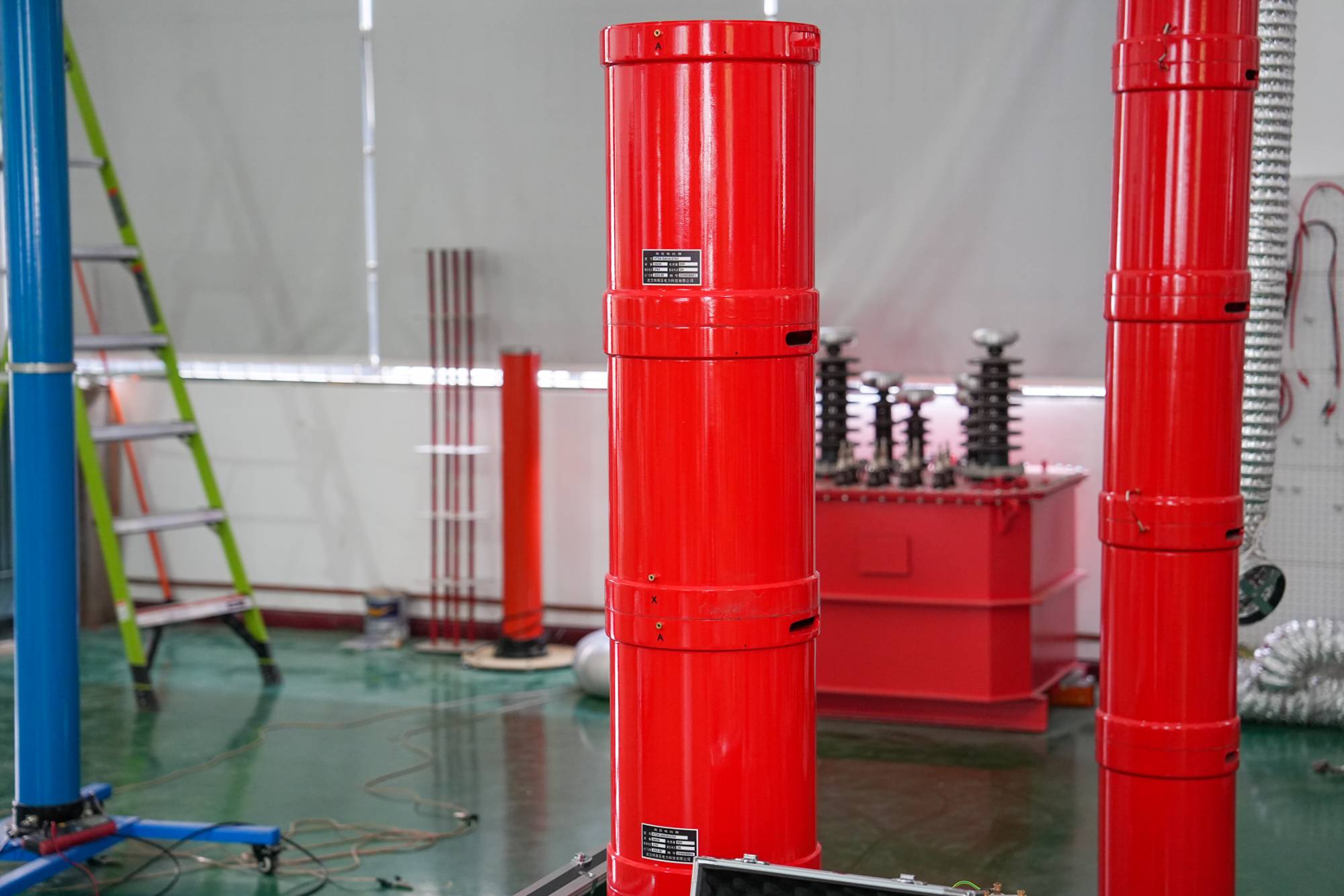
The complete set of equipment for frequency conversion series resonance test is used to conduct AC withstand voltage test on the generator
2025-10-15To evaluate the insulation strength of a generator, the frequency conversion series resonance test equipment and the power frequency AC withstand voltage test are the most effective and direct ways, because the waveform frequencies of the voltage and working voltage in the power frequency AC withstand voltage test are the same, which will have important decisive significance for determining whether the generator can be used. Therefore, the power frequency AC withstand voltage test is a very important test in the generator insulation test.It should be noted that before conducting the AC withstand voltage test, it is necessary to comprehensively analyze and judge other non-destructive testing results such as insulation resistance, absorption ratio, leakage current, etc., and then decide whether the generator can undergo the withstand voltage test to avoid excessive insulation breakdown during the test.How to conduct AC withstand voltage test for series resonant generator, the specific op
MÁS -
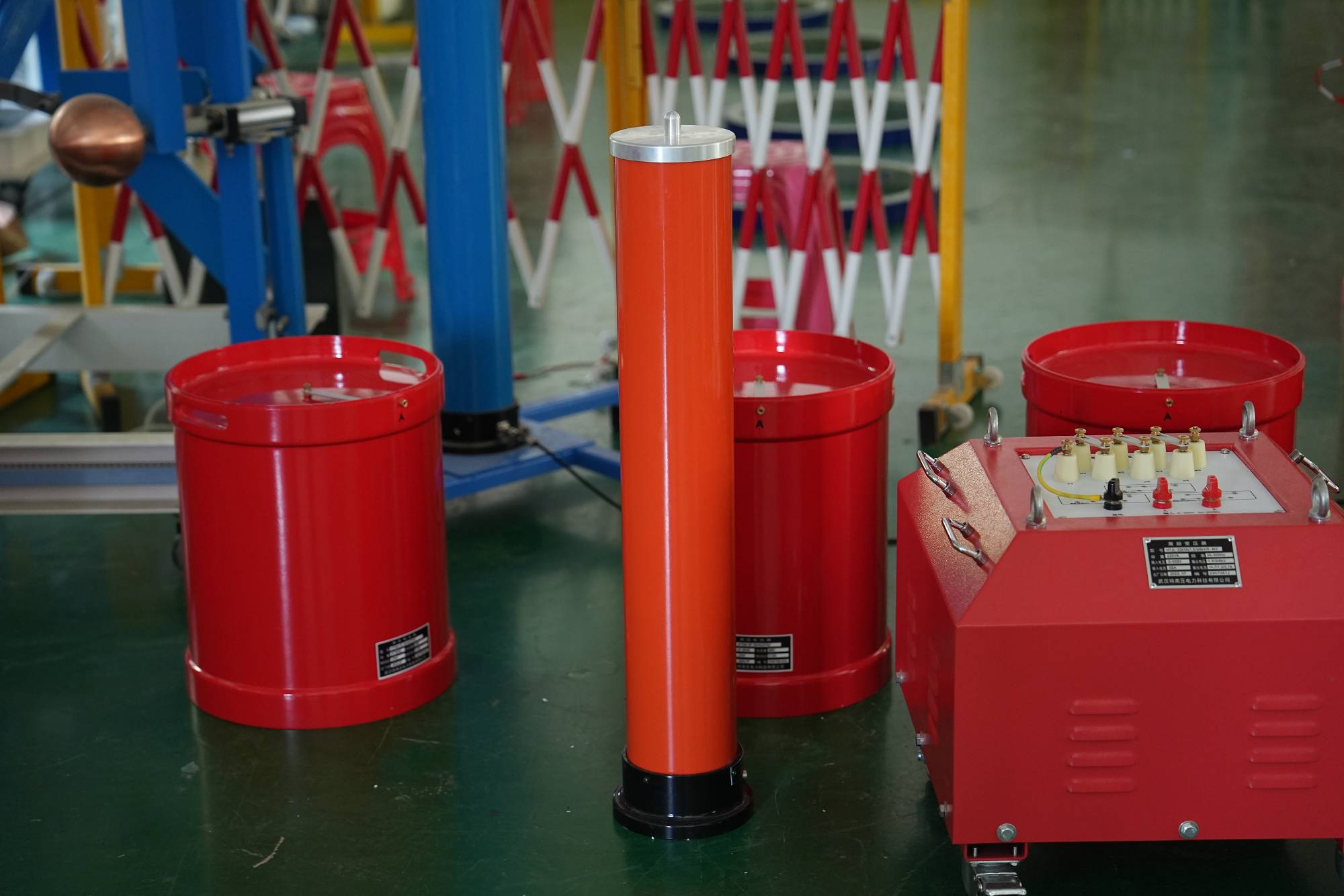
How to use the complete set of frequency conversion series resonance test equipment to quickly find the resonance point?
2025-10-15In practical work, power workers often need to conduct resonance tests on high-voltage power cables to find the resonance point of the cable. Therefore, a complete set of frequency conversion series resonance test equipment is needed. Many people often cannot quickly find the resonance point during use, and sometimes they cannot find it at all, which wastes a lot of time and energy on the test site. So, how to use the frequency conversion series resonance test equipment to quickly find the resonance point? The complete set of frequency conversion series resonance test equipment is preferred for quickly finding the resonance point. Depending on the voltage level of the tested cable, different types of series resonance test equipment need to be selected. The voltage level of the series resonance test equipment generally needs to cover the voltage level of the cable. If the voltage of the equipment is not as high as that of the cable, it is impossible to find the resonance point of the c
MÁS -

Calculation formula for the complete set of frequency conversion series resonance test equipment
2025-10-15The complete set of frequency conversion series resonance test equipment mainly refers to the voltage and current of the series circuit reaching the same phase, that is, the inductance reactance of the inductor and the capacitance reactance of the capacitor in the circuit are equal, making the circuit exhibit pure resistance characteristics. Under the given terminal voltage, a large current will occur in the circuit, and the active power consumed in the circuit will also be large. This article introduces the formula for the complete set of variable frequency series resonance test equipment.The imaginary part of the impedance of the frequency conversion series resonance testing device circuit is equal to 0. So Z=R+jX, X=0, Z=R, so I=U/Z=U/R.1. Resonance definition: The energy of components L and C in a circuit is equal. When one reactive element in the circuit releases energy, the other reactive element must absorb the same energy. In other words, resonance occurs between the two reacti
MÁS -
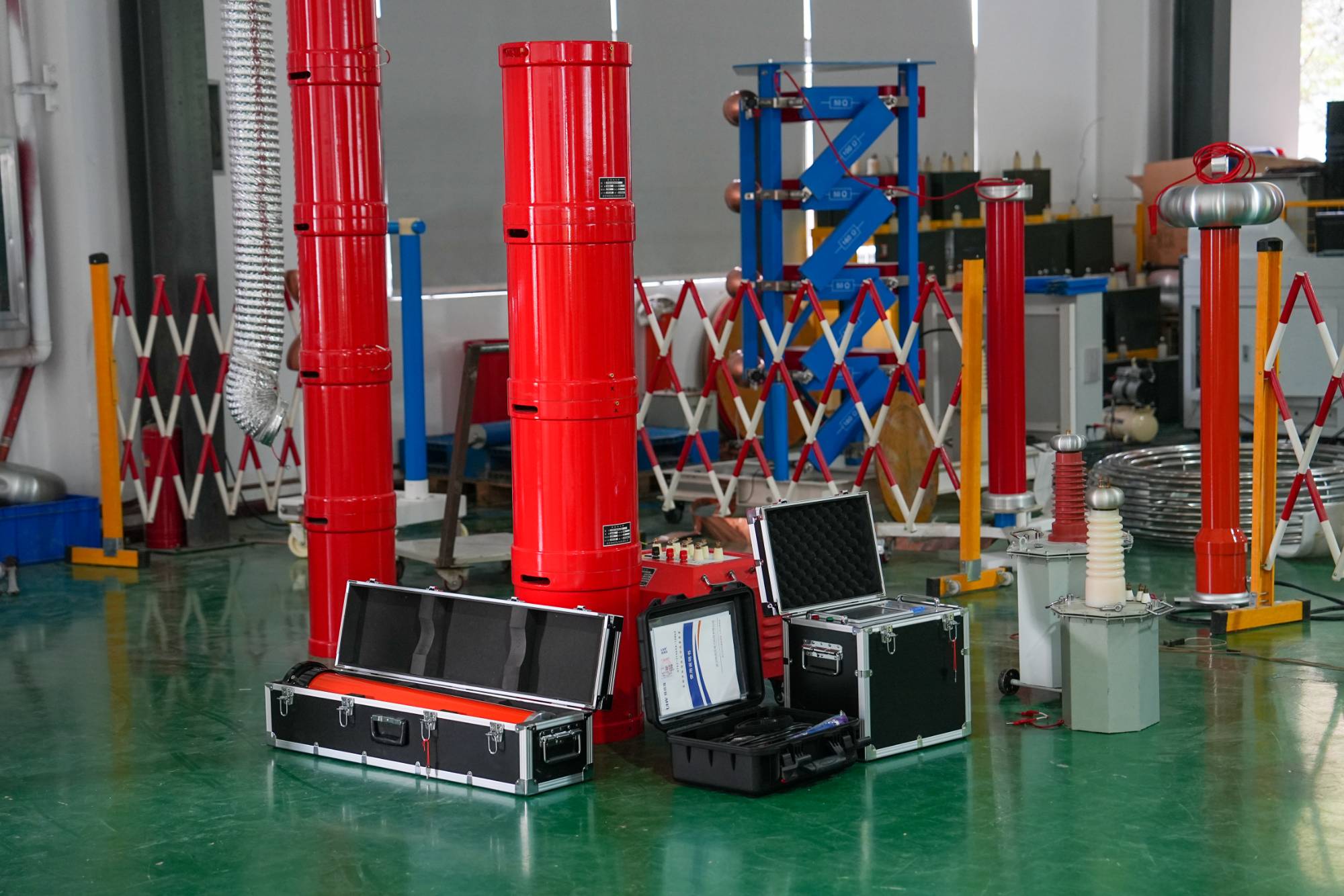
Power equipment testing often uses a complete set of frequency conversion series resonance testing equipment
2025-10-14The complete set of frequency conversion series resonance test equipment is used to change the inductance and test frequency of the testing system, so that the circuit is in a resonant state, and most of the capacitance current on the testing circuit is cancelled out by the induced current on the reactor. The energy provided by the power supply is only a small part of the resonance multiple consumed in the circuit, that is, a part of the resonance multiple of the capacity of the test piece; Therefore, the capacity of the test power supply slowly decreases, and the weight is greatly reduced. The complete set of frequency conversion series resonance test equipment system can be divided into two types according to the adjustment method: regulating type and frequency modulation type.Belonging to the resonant current filtering circuit, it can improve the waveform distortion of the power supply, obtain a better sine voltage waveform, and effectively prevent harmonic peaks from causing false
MÁS -
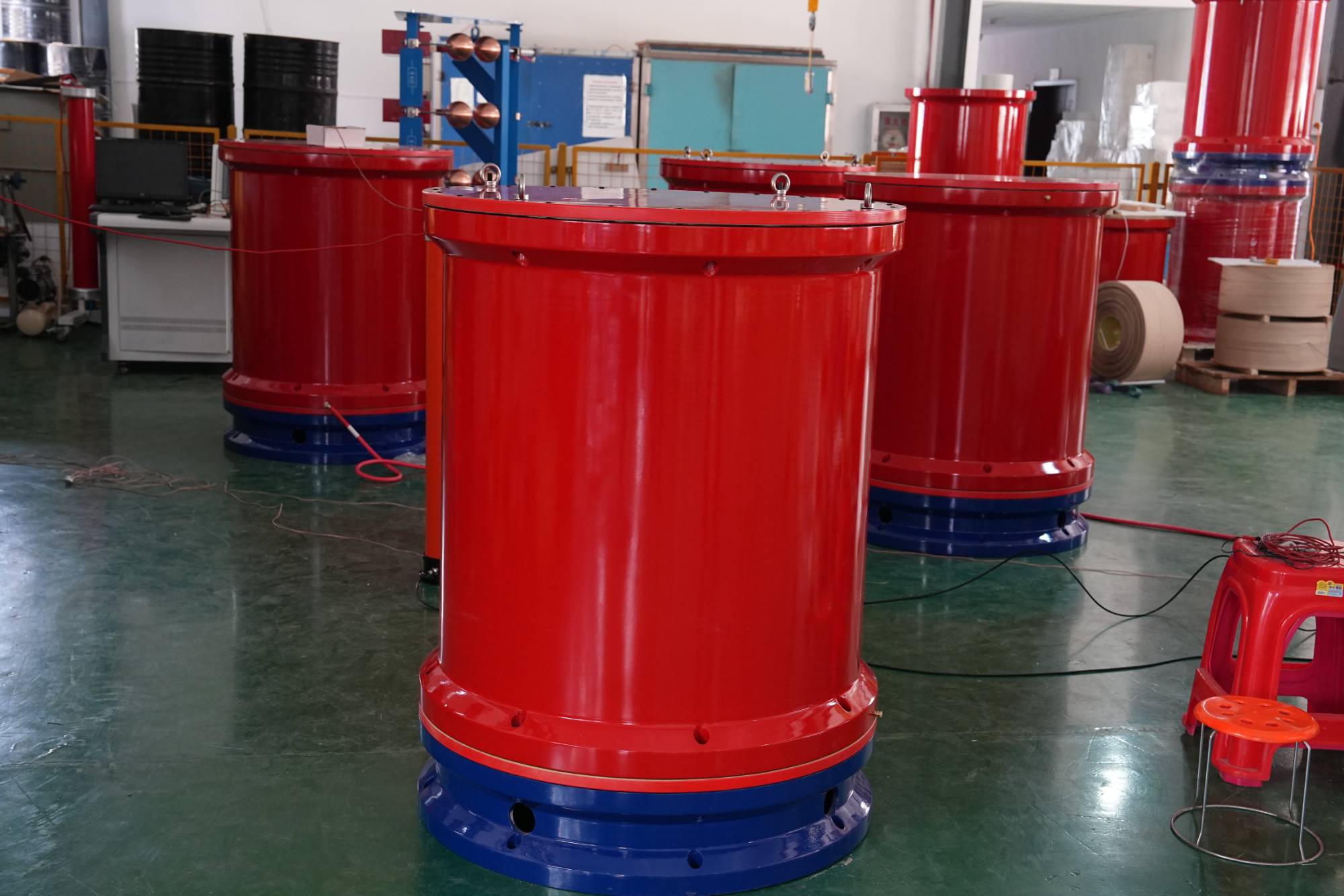
Protection function of the complete set of frequency conversion series resonance test equipment
2025-10-14Before using power cables, a series resonance test must be conducted. At the same time, the complete set of variable frequency series resonance test equipment also has corresponding protection functions. What is the protection function of the complete set of variable frequency series resonance test equipment?Flashover protection: When the tested object experiences a discharge fault, the device will quickly cut off the output voltage and disconnect the power supply. The load of the high-voltage circuit will be released through the intermediate boosting transformer, without causing overvoltage or affecting other equipment. The 'flashover fault' will be displayed on the screen of the console. Overvoltage protection: The complete set of frequency conversion series resonance test equipment can set the test voltage to prevent the test voltage from rising due to external reasons; When the test voltage exceeds the set value, the console will automatically cut off the cycle and prompt
MÁS -
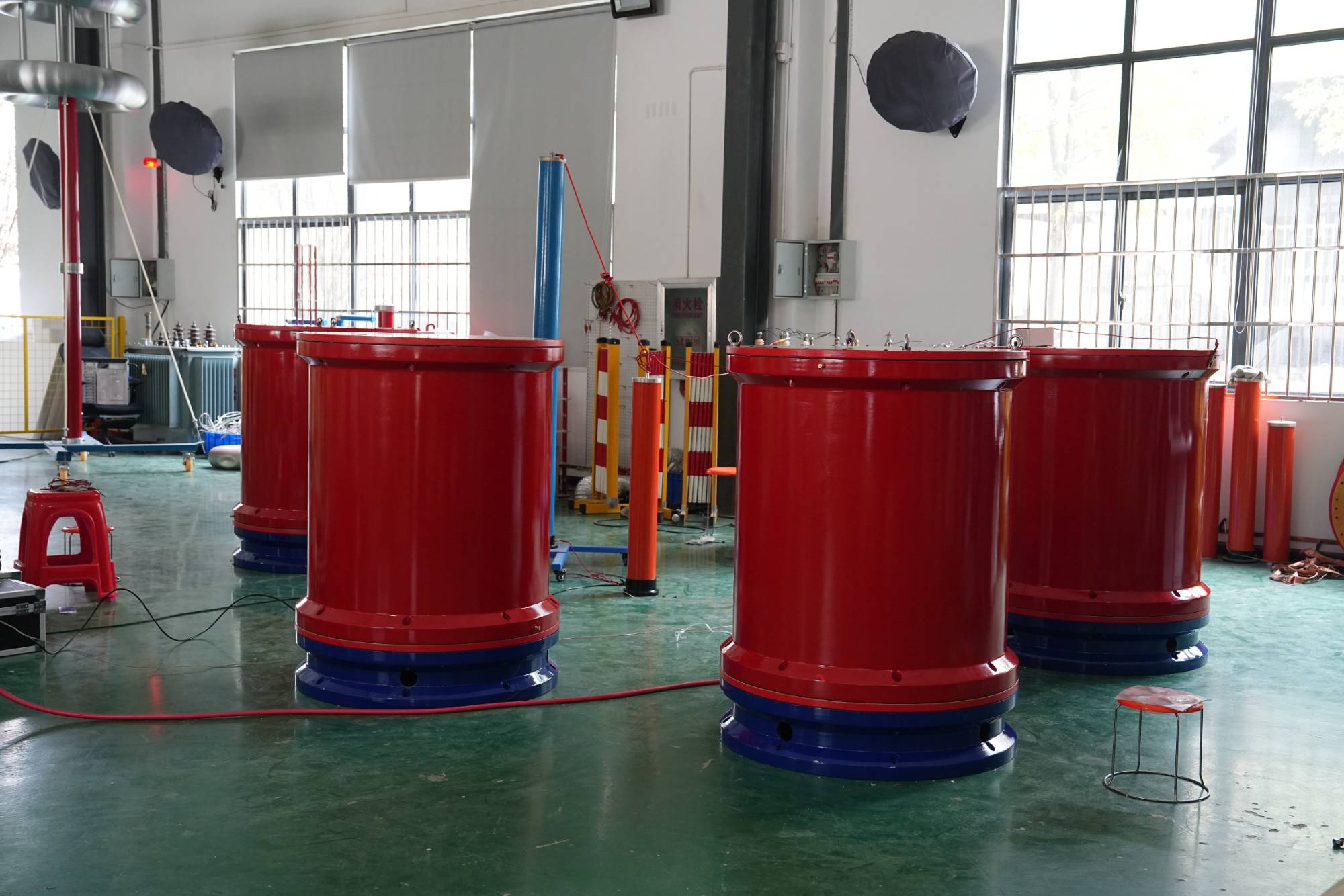
Common knowledge of safe electricity use for the complete set of frequency conversion series resonance test equipment
2025-10-14The testing method of the frequency conversion series resonance test set device is to change the inductance and testing frequency of the testing system to make the circuit in a resonant state. In this way, most of the capacitance current on the test object in the test circuit is offset by the induced current on the reactor. The energy provided by the power supply is only the working power consumed by the circuit, which is 1/Q of the tested capacity (Q is the resonance multiple of the system), greatly reducing the capacity and weight of the tested power supply. The complete set of frequency conversion series resonance test equipment can be divided into two categories: induction type and frequency modulation type. The adjustable inductance resonance test system can meet the withstand voltage requirements, but due to its large weight and poor mobility, it is mainly used in laboratories. The variable frequency series resonance test device is a new type of high-voltage test method and power
MÁS -

Precautions for testing the complete set of frequency conversion series resonance test equipment
2025-10-13The complete set of frequency conversion series resonance test equipment is widely used in industries such as power, metallurgy, petroleum, and chemical. It can not only handle various specifications of power cables GIS、 Circuit breakers and enclosures can undergo AC withstand voltage tests, and the withstand voltage level of electrical equipment such as large generator sets, power transformers, and transformers can also be tested through certain frequency limitations.In recent years, "urban and rural network transformation", high-voltage cross-linked cables, and GIS (composite electrical appliances) have been widely used, and the capacity and length of cables continue to rise. The previous DC withstand voltage test could not accurately reflect the actual insulation performance of the above-mentioned equipment. In the case of large capacity, ordinary power frequency test equipment is very bulky and not suitable for on-site use. The intelligence and miniaturization of the frequency conv
MÁS -
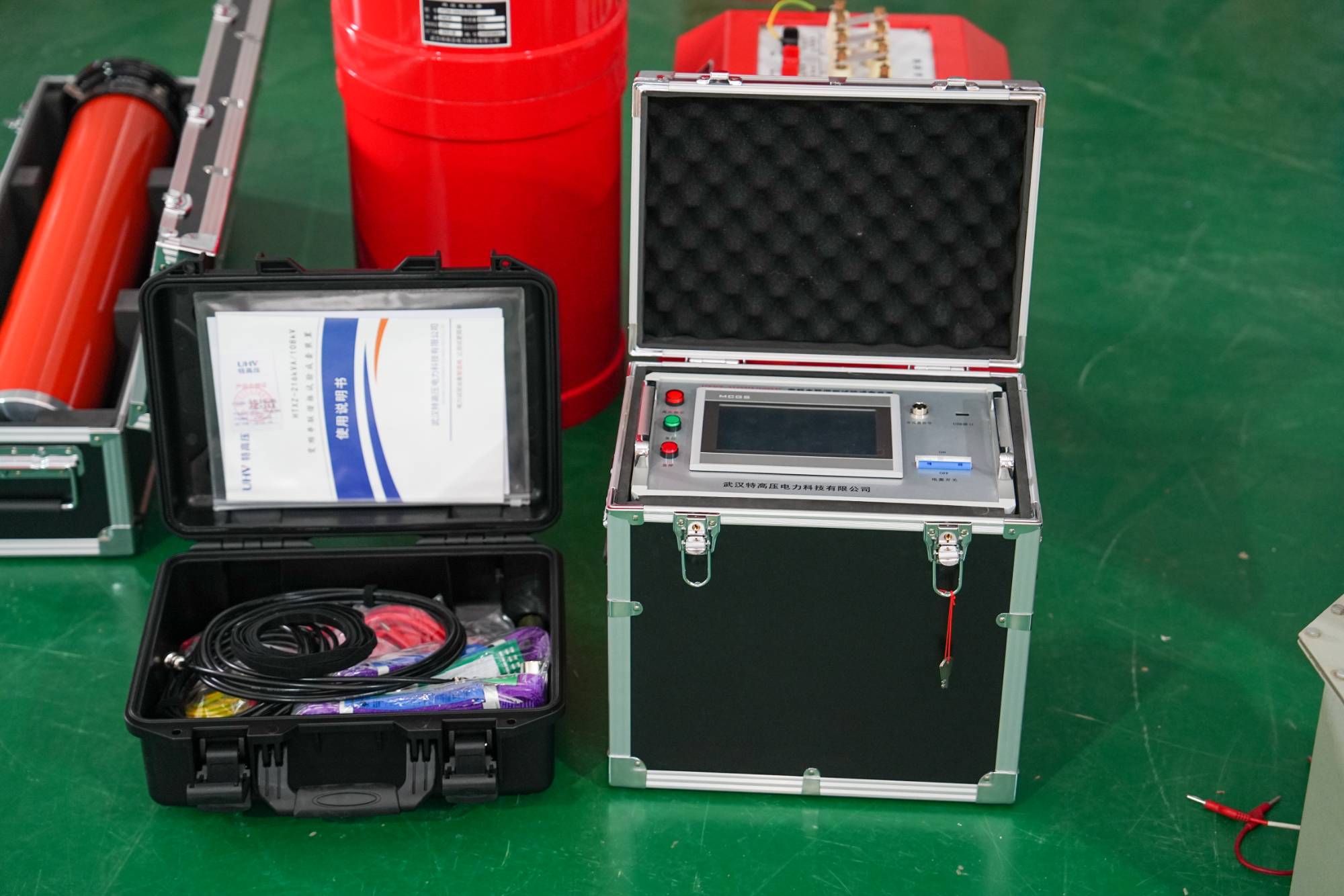
Operation method of the complete set of frequency conversion series resonance test equipment
2025-10-13The complete set of variable frequency series resonance test equipment adopts advanced variable frequency transformation and protection control technology, with reliable performance, comprehensive functions, and simple operation; The complete set of frequency conversion series resonance test equipment is designed for the characteristics of high test voltage and low test current; The complete set of frequency conversion series resonance test equipment has a high degree of automation, small size, and light weight; The weight of each unit in the complete set of frequency conversion series resonance test equipment shall not exceed 40kg, and it is suitable for on-site transportation; The reactor is made of dry-type epoxy casting, which is reliable in operation and easy to handle. It does not require lifting during on-site testing and can be manually installed and tested; The complete set of frequency conversion series resonance test equipment applies the principle of series parallel resonan
MÁS -

The complete set of frequency conversion series resonance test equipment is in resonance state for filtering
2025-10-13The complete set of frequency conversion series resonance test equipment is based on the working principle of the resonant frequency conversion series resonance test equipment. The AC 220V power supply outputs a frequency conversion voltage of 30-200Hz through the frequency conversion control unit, which is sent to the excitation transformer and boosted to 0-1000V to form a high-voltage main harmonic circuit. The capacitive voltage divider is a pure capacitive type used for measuring the test voltage. Firstly, the variable frequency control unit is fed into the main resonant circuit with a lower voltage Ue through an excitation transformer. When the frequency meets the condition Ω L=1/Ω C, the output frequency of the variable frequency control unit is adjusted, that is, the circuit reaches the resonant state.At this point, under a smaller excitation voltage UE, a voltage UCX several tens of times that of UE can be generated on the tested object Cx. The frequency conversion testing syst
MÁS -

The total resistance of the complete set of frequency conversion series resonance test equipment
2025-10-11The reason why the resistance is not equal to the power supply voltage during resonance is that when resonance occurs, the voltage on the resistance is the sum of the power supply voltage and the voltage of the charging and discharging capacitor. Therefore, the resistance voltage=power supply voltage+capacitor voltage, not equal to the power supply voltage. When a series resonance circuit resonates, the total impedance of the series resonance device is equal to the resistance, and the total resistance of the series resonance is equal to the voltage on the resistance. At this time, there is voltage on both the capacitor and the inductor, and the voltage on the inductor is equal to the voltage on the capacitor, but the voltage direction is opposite. When operating, be careful not to mistakenly think that there is no voltage on the capacitor and inductor, which may cause safety problems.The frequency selection characteristics of a series resonant circuit are usually represented by the Q v
MÁS -

Application of the complete set of frequency conversion series resonance test equipment in voltage withstand test
2025-10-11The resonant withstand voltage test method for the complete set of variable frequency series resonance test equipment is to change the inductance and test frequency of the test system to make the circuit in a resonant state, so that most of the capacitive current on the test sample in the test circuit is offset by the inductive current on the reactor. The energy supplied by the power supply is only the working power consumed in the circuit, which is 1/Q of the capacity of the test sample (Q is the resonance multiple of the system), so the capacity of the test power supply is decreasing and the weight is greatly reduced.The resonant withstand voltage test system of the complete set of frequency conversion series resonance test equipment is divided into two types according to the adjustment method: inductive modulation (VISR) and frequency modulation (VFSR); The adjustable inductance type resonance test system can meet the withstand voltage requirements, but due to its large weight and p
MÁS -

Detailed explanation of AC withstand voltage test for the complete set of frequency conversion series resonance test equipment
2025-10-11AC withstand voltage test is an effective and direct method for identifying the insulation strength of power equipment, and is an important component of preventive testing. In addition, since the AC withstand voltage test voltage is generally higher than the working voltage, the equipment has a large safety margin after passing the test. Therefore, AC withstand voltage test is an important means to ensure the safe operation of power equipment. A complete set of variable frequency series resonance test equipment is generally selected for the AC withstand voltage test.Determination of experimental voltageIn the AC withstand voltage test, the key issue is to correctly select the value of the test voltage, on the one hand, to ensure the insulation level; On the other hand, the test voltage caused by insulation degradation should be considered, and the following factors should generally be taken into account.1. Possible overvoltage values, duration, and frequency on the test sample; If the
MÁS -
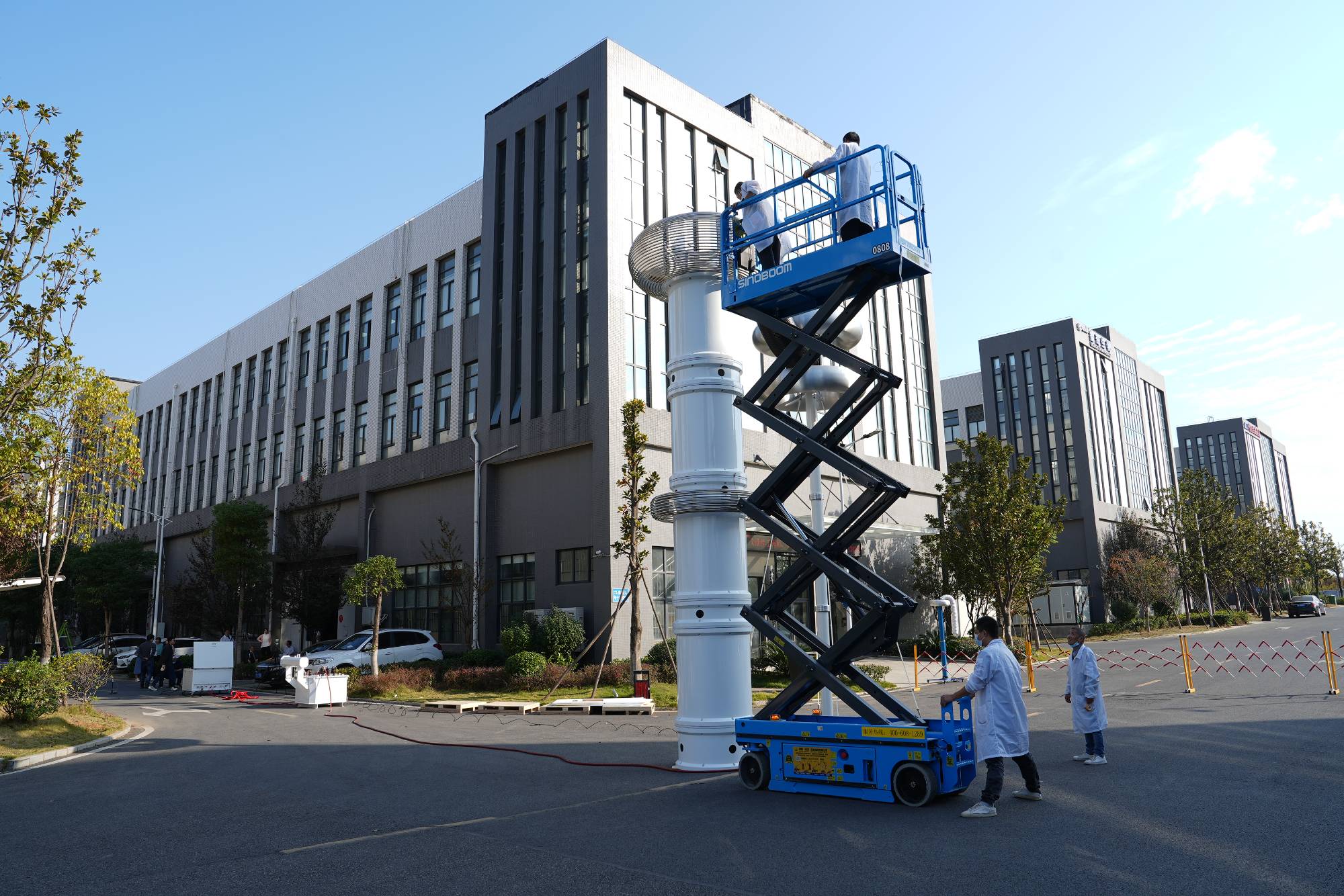
What are the production processes of series resonance manufacturers reflected in?
2025-10-10For any customer who chooses a series resonance (also known as a power frequency withstand voltage test device), it is necessary to ensure its overall use value, without any changes, and to be able to detect problems with their factory equipment in a timely manner and find a very reasonable way to solve them. Of course, when purchasing series resonance, what aspects of the manufacturer's production process are also mentioned?The reason for saying this is also because we are concerned that if the manufacturer is not particularly good, it will directly affect the series resonance produced and cannot meet our own needs. However, we do not need to worry about this issue when choosing. Because manufacturers choose very good raw materials and can ensure the rigor of every step. Every batch of series resonance produced undergoes strict performance and quality testing. If any problems arise, they will be promptly returned to the factory for rework and will not be sold to customers, so ever
MÁS -
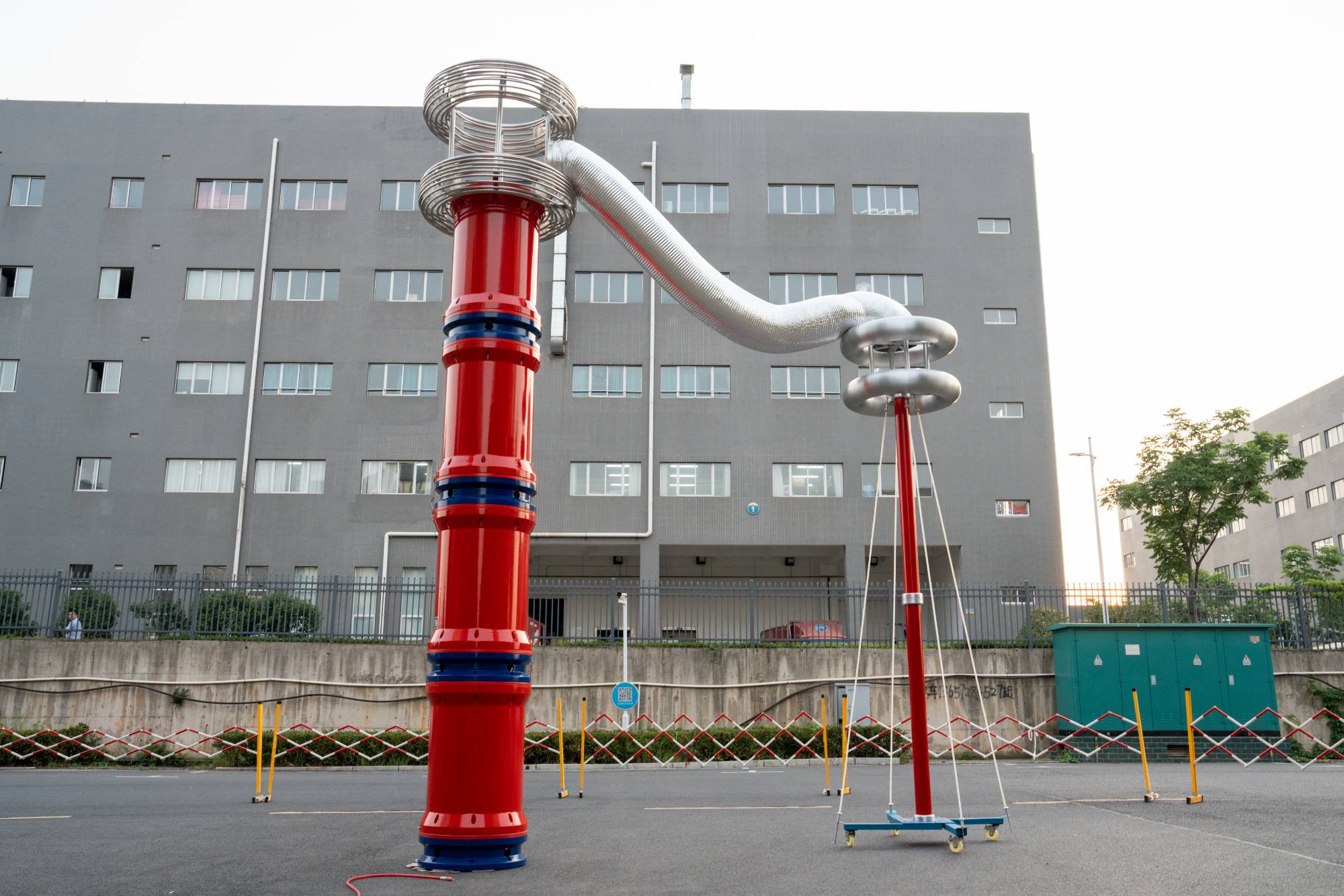
How about series resonance and what value can it bring to the factory?
2025-10-10The equipment in the factory also needs to be regularly inspected and maintained to understand if there are any problems in order to find suitable solutions and restore the production process of the factory. So, how can series resonance (also known as variable frequency series resonance withstand voltage test device) bring value to the factory?Firstly, it can improve the efficiency of factory testing. Although there are many different testing instruments in the market that can achieve the corresponding testing results, not every testing instrument is easy to operate and the accuracy of testing is very high. If you randomly choose a testing instrument without understanding it, it is very likely that you will find a significant difference from what you want when using it, and there will be many drawbacks throughout the entire use, seriously affecting the overall use, let alone the testing efficiency of several factories. However, series resonance is easy to install, has multiple usage me
MÁS -

What should be noted when installing series resonance?
2025-10-10Even after purchasing a very good series resonant device, there are still many details to pay attention to when using it, such as installation being one of them. Finding a suitable installation method can also have great value for the entire use. Let's take a look at what to pay attention to when installing series resonance?Firstly, it is necessary to understand whether there is a malfunction. Before the manufacturer sells their product to the market, there will also be corresponding performance and quality testing. However, during transportation, its quality and performance may be slightly affected due to external factors. Before installation, it is necessary to check whether the packaging of the series resonance device purchased is complete, whether the spare parts inside are complete, and whether the performance has changed. These are all things that need to be understood before installation to ensure a smooth installation process and precise data analysis capabilities during us
MÁS -

Working principle of series resonance test device for generating resonance in the circuit
2025-10-09When a voltage square wave is applied to an LC series circuit, both the front and rear edges of the square wave will excite the LC series circuit (i.e. receive energy), and after each excitation, damping oscillation (i.e. energy loss) will occur. When the rise rate dv/dt value of the input voltage waveform is greater than the rise rate of the resonant circuit waveform (sine wave), the circuit will generate excitation. When the rise rate dv/dt value of the input voltage waveform is less than the rise rate of the resonant circuit waveform, the series resonant device circuit will resonate.Due to the fact that the energy of the oscillation circuit has not been completely consumed after each excitation, a new excitation is then applied, causing the oscillation voltage to be superimposed again and again. If the phase of the excitation can be synchronized with the phase of the oscillating waveform, the amplitude of the oscillating voltage will increase until the energy of the excitation is eq
MÁS -

What are the uses of reactors in power systems
2025-10-09Wuhan UHV specializes in producing series resonance (also known as variable frequency series resonance complete equipment). Today, we will introduce the uses of reactors in series resonance in power systems.1. Limit short-circuit currentWhen a short circuit occurs in the power system, a high short-circuit current will be generated. In order to ensure the dynamic and thermal stability of electrical equipment, reactors are usually connected in series with output circuit breakers to increase short-circuit impedance and limit short-circuit current. Due to the application of reactors, in the event of a short circuit, the voltage drop across the reactor will be very high. It also has the function of maintaining bus voltage, ensuring small fluctuations in bus voltage, and ensuring the stability of electrical equipment operation on fault free lines.2. Suppress high-order harmonicsDue to the use of a large number of power electronic devices in the power system, especially high-power DC and freq
MÁS -

Why do reactors need to be connected in series with a capacitor
2025-10-09Wuhan UHV specializes in producing series resonance (also known as variable frequency series resonance). Today, we will share with you why the component reactor in series resonance needs to be connected in series with a capacitor. Some customers often ask why reactors should be connected in series. It feels expensive and takes up a lot of space. In fact, the function of the reactor is very important. Reactors are also known as inductors. Reactors are mainly used to limit short-circuit currents. In addition, it can also be connected in series or parallel with power capacitors in the filter to limit high-order harmonics in the power grid.In fact, the main function of series reactors is to suppress high-order harmonics or limit switch surges, prevent harmonic hazards to capacitors, and avoid excessive amplification and resonance when capacitors are connected to the power supply. Harmonics in the power grid. For the increasingly automated life, the harmonic problem in the power system is b
MÁS -
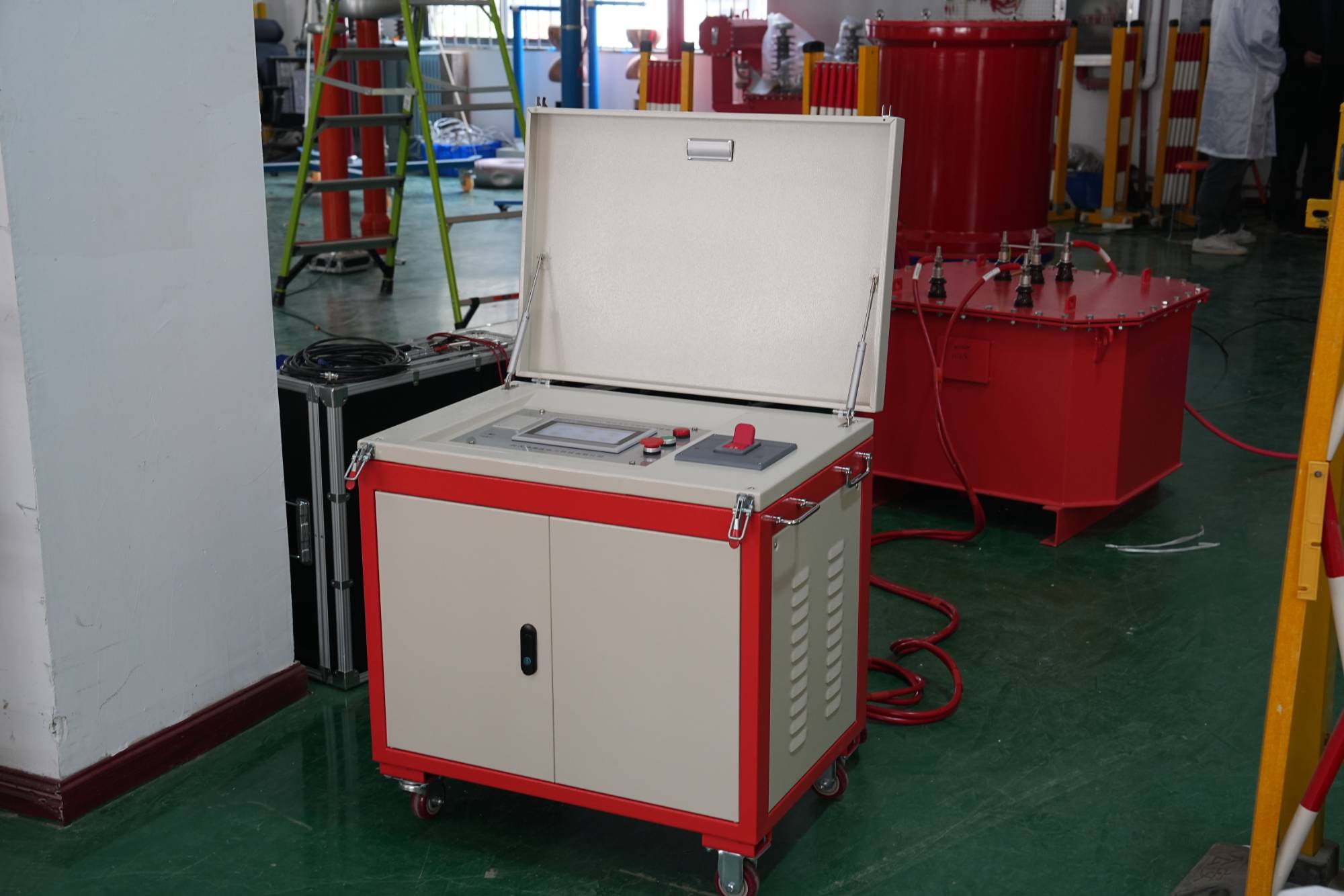
Analysis of the Voltage Withstand Test Principle of Variable Frequency Series Resonance
2025-09-30Analysis of the Voltage Withstand Test Principle of Variable Frequency Series ResonanceThis article mainly introduces the voltage withstand test principle of series resonant frequency conversion Firstly, the following components were introduced:The series resonant frequency detection kit mainly consists of a frequency controller, excitation transformer, reactor, and high-voltage divider. The technology of variable frequency system controllers can be divided into two categories: desktop control environment for 20KW and above, and portable box type for 20KW and below; It can be composed of a controller and a filter.The main function of a frequency controller is to have a fixed amplitude and adjustable amplitude and frequency sine wave with a frequency of 380V or 200V sine alternating current. And provide a power source for the development of the entire equipment. The function of the excitation transformer is to increase the output voltage of the variable frequency power supply to the app
MÁS -
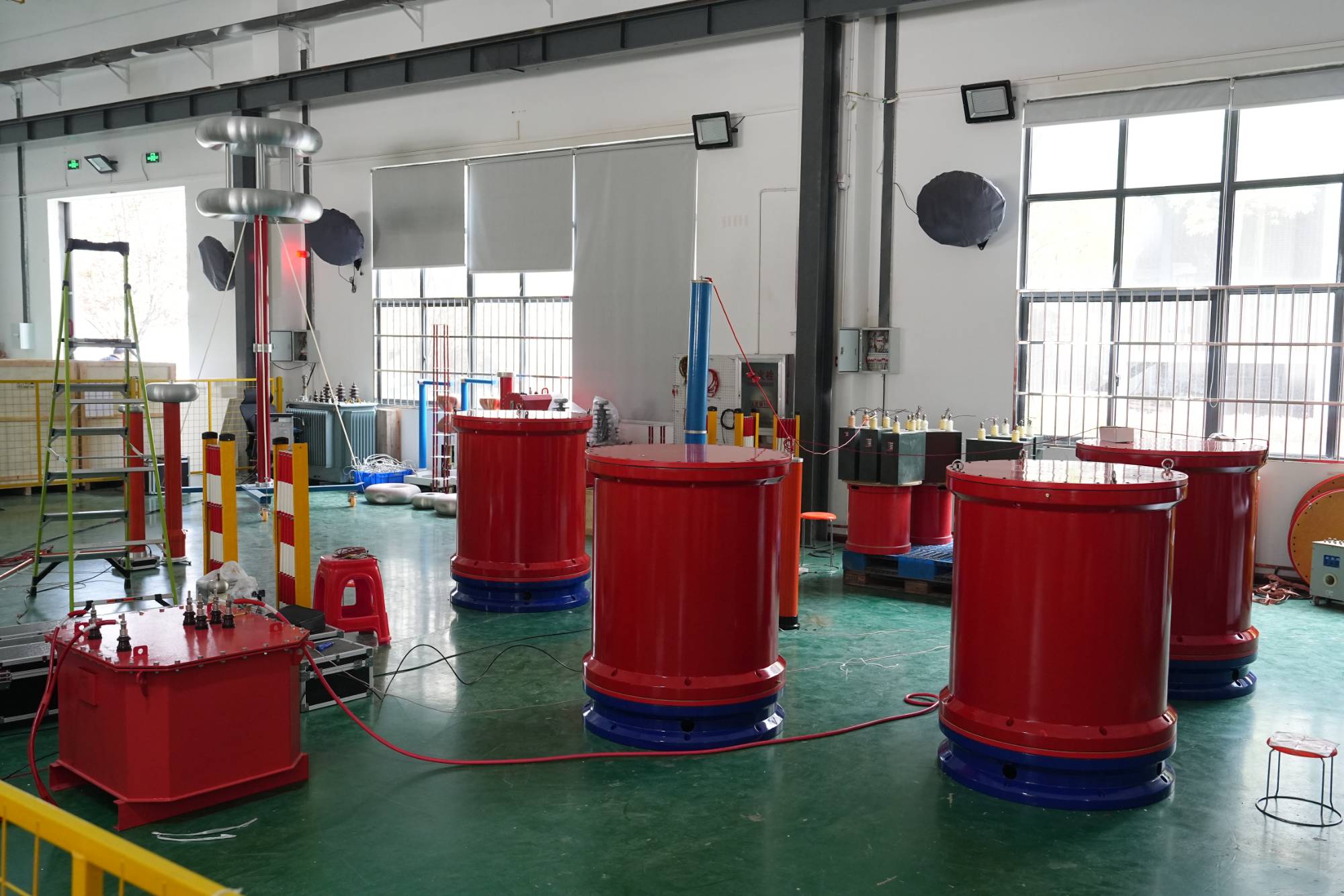
Working principle of voltage withstand test for variable frequency series resonance
2025-09-30Analysis of the working principle of voltage withstand test for frequency conversion series resonanceIn today's series resonant frequency voltage test, we first introduce the principle of the composite:The complete set of equipment for a resonant structure test system using frequency conversion technology is mainly composed of a frequency converter controller, excitation transformer, high-voltage reactor, high-voltage voltage divider, etc. Variable frequency controllers are divided into two categories: desktop controllers with 20KW and above, and portable box type controllers with 20KW and below; composed of controllers and filters .The main function of a frequency controller is to have a fixed amplitude and adjustable amplitude and frequency sine wave with a frequency of 380V or 200V sine alternating current. And provide a power source for the development of the entire equipment. The exciter frequency power transformer is used to increase the output voltage to a suitable test volt
MÁS









